In Florida, the helmet laws are designed to protect motorcyclists from unnecessary injury and death. If you’ve been wondering whether Florida has a helmet law or not, you’re in the right place! In this article, we’ll answer all your questions related to helmets and motorcycle safety in Florida.
Table of Contents
What Is Florida’s Helmet Law?
In Florida, the helmet law requires all motorcyclists to wear a protective helmet whenever they’re riding. This applies to both operators and passengers of motorcycles. The helmet must meet or exceed the safety standards set by the Federal Motor Vehicle Safety Standard 218 (FMVSS 218). Helmets that aren’t approved can lead to fines for the rider.
It’s also important to note that wearing a helmet doesn’t absolve motorcyclists from any liability in the event of an accident. Even if you’re wearing a helmet, you can still be found negligent or at fault for the accident and held responsible for any injuries or damages caused by the incident. [1]
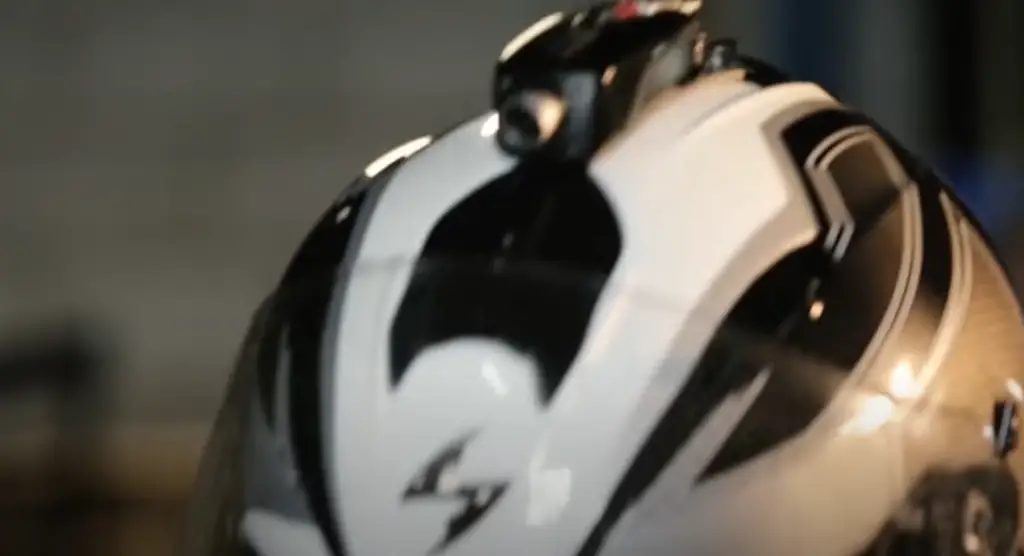
Florida’s General Rule for Motorcycle Helmet Use
In Florida, the general rule for motorcycle helmet use is that all riders must wear a U.S. Department of Transportation (DOT) approved helmet. This law applies to both operators and passengers.
The helmets should also fit snugly and securely on riders’ heads, covering their entire head, including their eyes, ears, and chin. In addition, it should be equipped with a face shield, safety glasses, or goggles that are in good condition and provide necessary protection.
[3]
Are There Exceptions to Florida’s Helmet Law?
Yes, there are some exceptions to the Florida helmet law. In general, however, you must wear a helmet if you’re driving on public roads in Florida.
For motorcyclists age 21 and over, they can ride without a helmet if they have more than $10,000 in medical insurance coverage for motorcycle accident-related injuries.
Minors are also exempt from the helmet law if they are riding a moped or scooter that has an engine size of 50 cc’s or less, and they must have at least $10,000 in medical insurance coverage (as well as valid driver’s license).
Bicycle riders aged 16 and under are also not required by law to wear a helmet, but it is highly recommended.
Finally, riders and passengers on an “enclosed three wheeled motor vehicle” (like a Can Am Spyder or similar vehicles) are exempt from the helmet law. [1]

Complying with Florida’s Insurance Exception
When operating a motorized cycle in Florida, you must carry an insurance policy that meets the minimum requirements of the state. The minimum requirement is $10,000 of liability coverage per person, up to $20,000 for all people injured in an accident and $10,000 of property damage liability coverage. If you can’t provide proof of insurance, you must purchase a surety bond.
If the state finds that you are not in compliance with the insurance requirements, then they will issue an exception and let you ride without a helmet. This exception is only applicable if you’re over 21 years old and have held a valid driver’s license for at least 3 years. The state will also check that you have never been convicted of a traffic violation or DWI/DUI, and they must be able to verify your insurance coverage. [1]
When Did Florida Repeal Its Helmet Law?
Until 2000, Florida had a helmet law that required all motorcyclists to wear helmets while operating their motorcycles. The law was repealed in the year 2000, making it one of only 19 states without a universal helmet law.
While there is no longer a universal requirement for helmets in the state of Florida, riders under 21 are still required by law to wear a helmet. Motorcyclists over the age of 21 may ride without helmets, as long as they have at least $10,000 in medical insurance coverage. [1]
Is Florida’s Helmet Law Constitutional?
The short answer is yes. Florida’s helmet law was declared constitutional by the 11th Circuit Court of Appeals in 2013. The court found that the helmet law was a reasonable and effective way to reduce motorcycle-related fatalities and injuries.
Under Florida’s helmet law, all riders are required to wear a safety helmet when operating a motorcycle. The helmet must meet the safety requirements established by the Department of Highway Safety and Motor Vehicles (DHSMV). In addition, riders under 21 must also wear eye protection. [1]
Is Eye Protection Required for Motorcyclists in Florida?
The Florida Motor Vehicle Safety Code states that all motorcycle operators and passengers must wear eye protection while riding. The eye protection must be made of an approved material either as part of a face shield, goggles, or glasses with lenses made from safety glass or plastic. It is important to note that tinted lenses may be worn if the darkness does not exceed a certain amount, as specified in the law.
Additionally, if you are riding in an area that has low visibility due to fog or rain, you must use other devices such as face shields, goggles or glasses with lenses made from safety glass or plastic. When choosing your eye protection for motorcycle riding in Florida make sure it meets Department. [1]

What Is the Penalty for Operating a Without a Helmet in Florida?
In Florida, if you are caught riding a motorcycle without a helmet, you may be subject to fines up to $500. Additionally, if you are pulled over for another infraction while riding without a helmet, such as speeding or DUI, the officer is legally allowed to add the helmet violation onto your charges.
It’s important to note that you will likely receive a penalty if you are found riding without a helmet even if it is your first offense. Laws vary by state, so be sure to check with local authorities before traveling to a different area on two wheels. [1]
Florida Helmet Laws and Car Accident Compensation
Florida does have a helmet law, but the specifics may vary depending on where you’re riding or driving. In general, anyone under the age of 21 must wear a helmet when operating or riding as a passenger on any motorized vehicle in Florida. Additionally, it’s important to note that motorcycle drivers and passengers are required to wear helmets regardless of age.
When it comes to car accidents, the rules for compensation may vary depending on who was at fault and if a helmet was used or not. If you were injured in an accident due to someone else’s negligence, but you weren’t wearing a helmet – then you may still be able to receive compensation for your medical bills and lost wages. However, if you weren’t wearing a helmet and it’s determined that the accident may not have occurred or been as serious had you been wearing one – then your compensation could be reduced as a result. [1]
Comparative Negligence and Motorcycle Accidents
In Florida, the laws governing motorcycle accidents are based on a concept called comparative negligence. This means that any fault attributed to a victim of an accident can be used to reduce the amount of compensation they receive. For example, if someone wasn’t wearing a helmet and was involved in an accident, their lack of safety equipment may be taken into account when it comes to their settlement amount.
It is important to note that even if the rider was wearing a helmet, if they were not able to avoid being involved in the accident, then comparative negligence may still factor into their settlement amount. [1]
Not Wearing a Helmet and Claiming Compensation
If you’re involved in a motorcycle accident while not wearing a helmet, you may be eligible to claim compensation for your injuries. In Florida, the law states that anyone operating or riding on a motorcycle must wear protective headgear which complies with the Federal Motor Vehicle Safety Standard (FMVSS). This means that if you were not wearing a helmet at the time of your accident, it can be considered negligence on your part and you may not be able to collect full compensation for your injuries.
However, this does not mean that you will not be eligible for any compensation. Florida law provides that in certain situations, an individual who was injured in a motorcycle accident while not wearing a helmet may be able to collect some compensation. This is known as the helmet defense, and it can be argued in court that the other party was at least partially responsible for your injuries due to their negligence or reckless behavior. [1]
Do Motorcycle Helmets Save Lives?
It’s no secret that motorcycle accidents can be serious and even life-threatening. That’s why the safety of riders is a priority for many states, including Florida. But does wearing a helmet really make a difference? Absolutely! Wearing a DOT-compliant motorcycle helmet has been proven to reduce the risk of death by up to 37%. [2]

Reasons to Always Wear a Helmet
No matter what your age, it’s always a good idea to wear a helmet when you’re on the road – even if you live in Florida! But why should Floridians be more cautious than those living in other states? Here are some reasons for wearing a helmet no matter where you ride:
- Safety First – Wearing a helmet is the single most effective way to protect your head in the event of an accident. Helmets reduce the risk of serious and fatal head injuries by up to 85%.
- Compliance with Laws – Some states, including Florida, have helmet laws that require riders over a certain age or size to wear helmets while riding. Failing to obey the law could result in a fine or other penalties.
- Visibility – Wearing a brightly colored helmet can make you more visible on the road, which can help prevent accidents with motorists and cyclists alike.
- Comfort – Helmets are designed to provide protection while also being comfortable and lightweight. Many models come with adjustable straps and air vents to keep you cool on hot days. [2]
Enforcement of Florida’s Helmet Law
In the state of Florida, it is a legal requirement for motorcycle riders to wear helmets that meet certain standards. This requirement is enforced by the Florida Highway Patrol (FHP). Any motorcyclist who fails to comply with the law may be subject to a fine of up to $500 or 60 days in jail. Additionally, anyone caught riding without a helmet may have their license suspended for up to 1 year.
The FHP also has the authority to inspect helmets and issue citations if they do not meet the appropriate safety standards. If you are stopped by an officer and asked to provide proof of compliance with the law, it is important that you present a compliant helmet and proof of purchase.
What You Need to Know About Helmet Laws for Children
For parents of young riders, the most important question to ask is whether Florida has a helmet law. The answer is both yes and no. Florida does not have a universal helmet law for all cyclists, but it does require anyone under the age of 16 to wear a bicycle helmet when riding on public roads or pathways. [3]
Vehicles to Which the Motorcycle Helmet Laws Do Not Apply
In Florida, motorcycle riders who are 21 or older and carry at least $10,000 of medical insurance coverage are not required to wear a helmet. There are also certain vehicles that the helmet laws do not apply to:
- Riders of three-wheeled motorcycles
- Mopeds
- Electric bicycles (e-bikes).
Additionally, the motorcycle helmet law in Florida does not apply to passengers of all ages that are riding in sidecars. However, these passengers must still be seated and securely fastened within the sidecar at all times. [3]
What Is The Difference Between Certified And Non-Certified Helmets?
When it comes to helmets, there are two categories of certification: Department of Transportation (DOT) and Snell. DOT certified helmets provide basic protection and typically meet the nationally recognized standards in safety, while Snell certified helmets exceed these standards and offer more comprehensive coverage.
In Florida, all riders are required by law to wear a helmet that is DOT certified at all times. Motorcycle riders must also wear protective eyewear or face shields, regardless of whether their helmets are DOT or Snell certified. [4]
Who Is Liable In A Motorcycle Accident?
If you are involved in a motorcycle accident, the first question that will come to your mind is who is liable. Generally, the person or parties at fault can be held responsible for any injuries and damage caused by their negligent actions or lack of due care. In Florida, the law requires all motorcyclists to wear helmets while riding, so not wearing a helmet could be considered a form of negligence.
When it comes to who is liable in an accident, the answer depends on many factors. Depending on the circumstances, the at-fault party can include motorcyclists, drivers, other parties such as pedestrians or cyclists, and even municipalities or states that are responsible for maintaining. [4]

Is Choosing Not To Wear A Helmet Considered Negligence?
In Florida, if you are caught riding a motorcycle without wearing a helmet, you will be issued a citation and fined. However, not wearing a helmet does not necessarily mean that you acted negligently in the eyes of the law.
If you were involved in an accident while not wearing a helmet and there was no obvious negligence on your part, you can still seek compensation for injuries. However, the fact that you were not wearing a helmet could be used as evidence to suggest that you acted negligently in causing the accident. [4]
Are Helmets Effective In Preventing Injuries?
Helmets are an essential piece of safety gear when it comes to motorcycle riding. According to the National Highway Traffic Safety Administration (NHTSA), a properly fitted helmet, worn correctly, is the single most effective way to reduce head injuries and fatalities resulting from motorcycle crashes. In Florida, wearing a helmet is not just a good idea – it’s the law. [4]
Other Ways To Prevent Motorcycle Injuries
While a helmet law may be in effect or not depending on state rules and regulations, there are other ways to help protect yourself from serious injury while riding a motorcycle.
- Wear protective clothing: Leather is the best material for protection, but you should also look for jackets with additional padding for your elbows, shoulders and back. Boots that cover your ankles and gloves that fit properly will help protect you in the event of a crash.
- Improve your riding skills: Taking a basic rider course is one of the best ways to stay safe on the road. Learning how to handle different weather conditions, maneuver curves and practice emergency braking can help keep you from dangerously overreaching. [4]
FAQ
Is it legal to ride without a helmet in Florida?
No, it is not legal to ride without a helmet in Florida. According to the Department of Highway Safety and Motor Vehicles, all riders must wear protective headgear that meets U.S. Department of Transportation standards while operating or riding on a motorcycle. Additionally, passengers are also required to wear a helmet at all times.
Which US states have no helmet law?
The states that do not have any helmet laws in place are Iowa, Illinois, and New Hampshire.
When was the no-helmet law passed in Florida?
The helmet law was passed in Florida in 1985 and requires all riders to wear U.S. Department of Transportation-approved helmets when operating or riding on a motorcycle.
Useful Video: Ask Trooper Steve: Florida does have a motorcycle helmet law
Conclusion
At the end of the day, wearing a helmet while riding your bike should be an individual choice. However, if you live in Florida, it’s important to know that there is no statewide law requiring riders to wear helmets.
That being said, some local governments may have laws that require cyclists to wear helmets within their jurisdiction. If you’re unsure whether a helmet is required in your local area, it might be worth consulting with an attorney to ensure that you are following the law.
In general, wearing a bike helmet can help reduce the risk of serious injury or death in the event of an accident. So even if there’s no legal requirement to do so, consider investing in a good quality helmet to give yourself the best possible protection.
Thanks for reading! We hope this article helped you understand Florida’s helmet law and make an informed decision about whether or not to wear a helmet while cycling. Stay safe, and happy riding!
References:
- https://bernsteininjurylaw.com/blog/florida-motorcycle-helmet-law/
- https://billallenlaw.com/florida-motorcycle-helmet-laws/
- https://www.chaliklaw.com/faqs/is-it-illegal-to-drive-a-motorcycle-without-a-helmet-in-florida/
- https://www.lawfran.com/blog/2022/06/do-i-need-to-wear-a-motorcycle-helmet-in-florida/

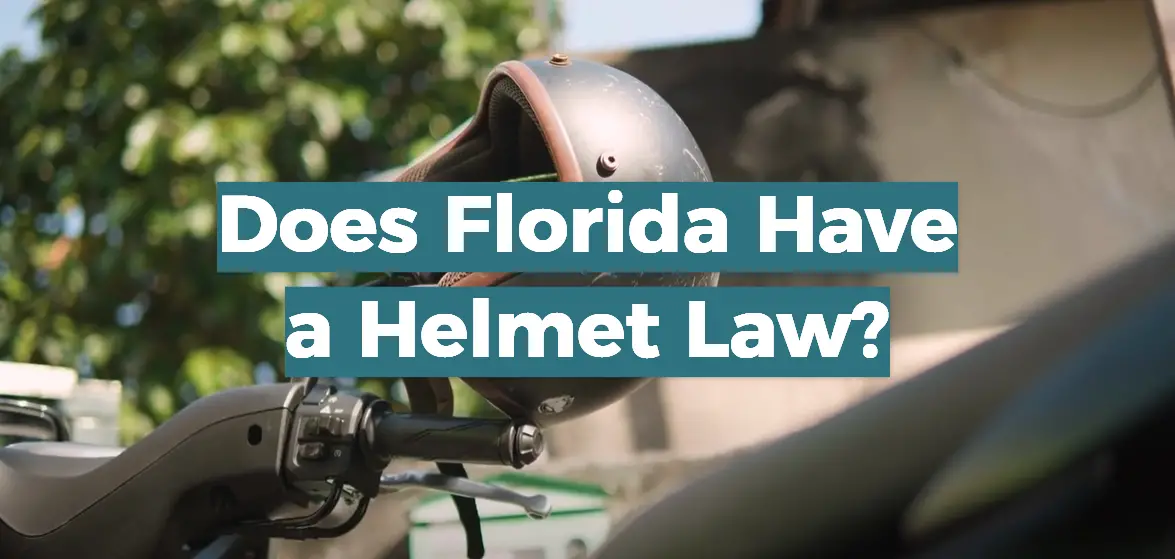
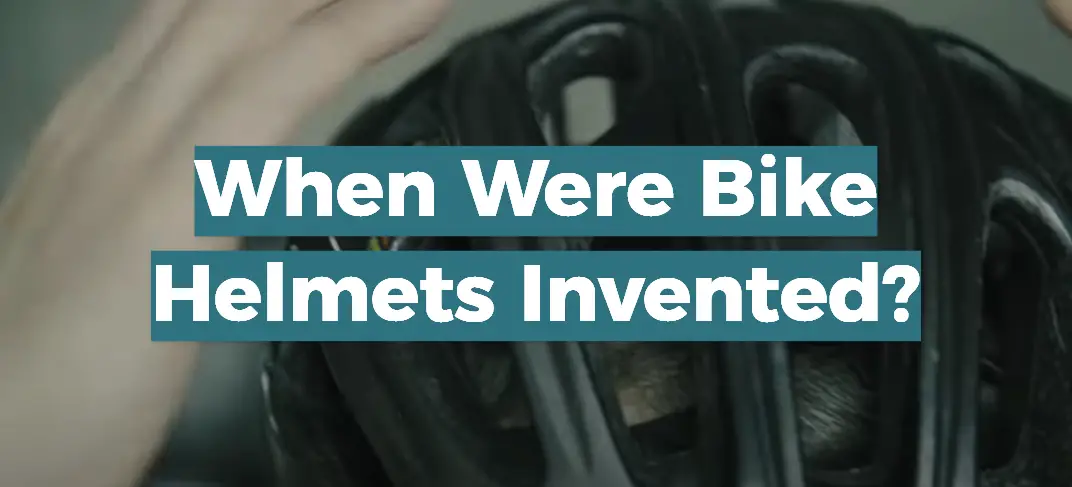
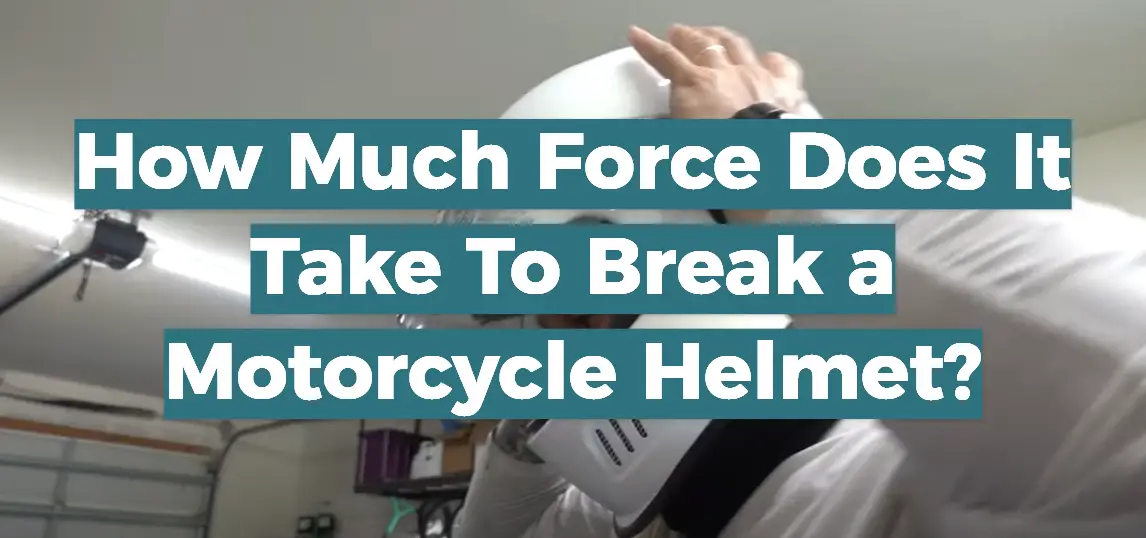

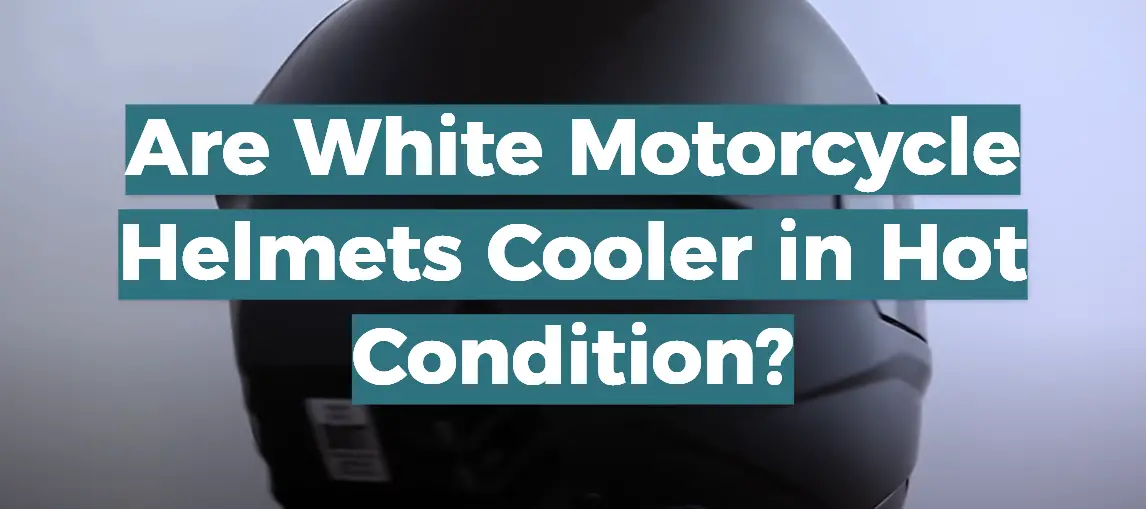
Leave a Reply